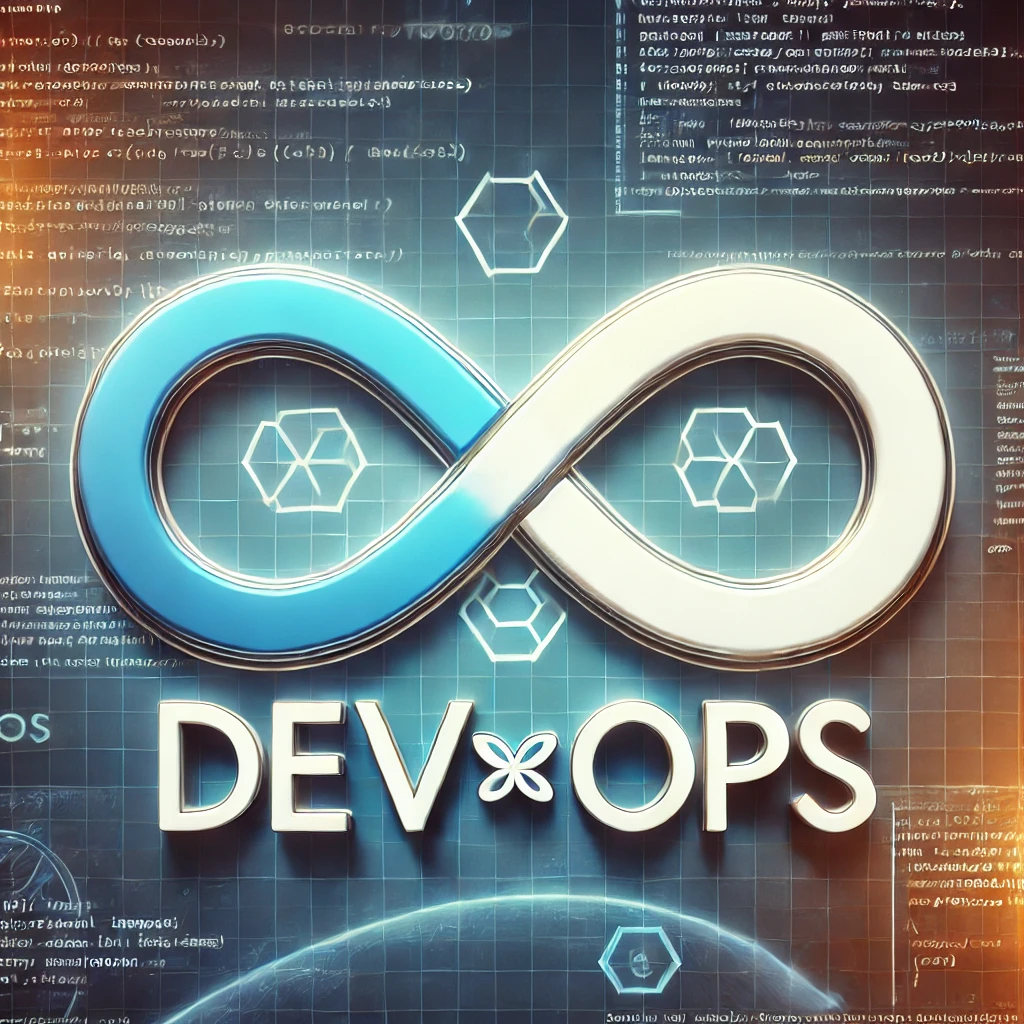In today’s rapidly evolving tech landscape, the role of DevOps engineers has become more critical than ever. Companies across various industries are realizing the benefits of adopting DevOps practices to enhance their development and operational processes. This article will guide you on how to hire certified external talent for Cloud DevOps Engineers, including AWS Certified DevOps Engineers and Azure DevOps Engineers.
Understanding DevOps
DevOps is a methodology that combines software development (Dev) and IT operations (Ops) with the goal of shortening the systems development life cycle and delivering high-quality software continuously. It emphasizes collaboration between previously siloed teams, continuous integration, continuous delivery, and automation. By adopting DevOps practices, organizations can achieve faster deployment times, improved performance, and more reliable software products.
Importance of DevOps Engineers
DevOps engineers are pivotal in bridging the gap between development and operations teams. They ensure that software is developed, tested, and deployed efficiently and reliably. Their role involves automating processes, managing infrastructure, and implementing continuous integration and continuous delivery (CI/CD) pipelines. Without skilled DevOps engineers, organizations may face challenges like slow release cycles, increased bugs, and inefficient workflows.
Types of DevOps Engineers
AWS Certified DevOps Engineer
AWS Certified DevOps Engineers specialize in using Amazon Web Services (AWS) to build and manage scalable, reliable, and secure systems. They are proficient in AWS services such as EC2, S3, and Lambda, and use infrastructure as code (IaC) tools like AWS CloudFormation and Terraform. These engineers are skilled in designing and implementing CI/CD pipelines, automating deployments, and managing cloud infrastructure.
Azure DevOps Engineer
Azure DevOps Engineers focus on Microsoft’s Azure platform. They utilize Azure DevOps services to manage the software development lifecycle, from planning and coding to testing and deployment. These engineers are adept at using Azure tools and services, including Azure Pipelines, Azure Repos, and Azure Artifacts. They ensure that applications are developed and deployed efficiently in the Azure cloud environment.
Cloud DevOps Engineers
Cloud DevOps Engineers have expertise across multiple cloud platforms, such as AWS, Azure, and Google Cloud Platform (GCP). They design and implement cloud-based solutions that are scalable, resilient, and secure. These engineers are skilled in cloud architecture, automation, and managing hybrid environments. Their versatility allows them to adapt to different cloud technologies and integrate various services seamlessly.
When to Hire External DevOps Engineers
Hiring external DevOps engineers can be beneficial for several reasons. If your organization lacks the in-house expertise to manage complex DevOps tasks, external hires can fill those gaps with their specialized knowledge. Additionally, external DevOps engineers can provide fresh perspectives and innovative solutions. When you need to scale your team quickly or undertake a significant project, hiring external talent can help you meet those demands efficiently.
Skills to Look For
Technical Skills
When hiring DevOps engineers, it is crucial to evaluate their technical skills. Look for candidates with proficiency in scripting languages such as Python, Bash, and PowerShell. Experience with CI/CD tools like Jenkins, GitLab CI, and Bamboo is essential. Additionally, knowledge of containerization technologies like Docker and Kubernetes is highly valuable. Familiarity with cloud platforms and services, such as AWS, Azure, and GCP, is also critical.
Soft Skills
Soft skills are equally important when hiring DevOps engineers. Effective communication is vital as DevOps engineers often collaborate with various teams. They should be able to explain technical concepts clearly and concisely. Strong problem-solving skills are necessary to troubleshoot issues and optimize processes. Adaptability and the ability to work in dynamic environments are also essential traits for successful DevOps engineers.
Certifications That Matter
AWS Certified DevOps Engineer
The AWS Certified DevOps Engineer certification validates the skills and knowledge required to implement and manage AWS environments effectively. This certification covers topics such as continuous delivery, automation, monitoring, and security. AWS Certified DevOps Engineers are proficient in using AWS services to design and implement scalable, reliable, and secure systems.
Azure DevOps Engineer
The Azure DevOps Engineer certification demonstrates expertise in using Azure DevOps services to manage the software development lifecycle. This certification covers areas like CI/CD, infrastructure as code, security, and monitoring. Azure DevOps Engineers are skilled in designing and implementing solutions that optimize the development and deployment processes within the Azure cloud environment.
Where to Find DevOps Engineers
Job Boards
Job boards like LinkedIn, Indeed, and Glassdoor are excellent platforms for finding DevOps engineers. These platforms allow you to post job openings and search for candidates with specific skills and experience. Utilize filters and keywords to narrow down your search and find suitable candidates.
Social Media
Social media platforms such as LinkedIn, Twitter, and Reddit can also be valuable resources for finding DevOps engineers. Join relevant groups and communities where professionals in the DevOps field gather. Engage with potential candidates by sharing job openings and participating in discussions.
Staffing Agencies
Staffing agencies specialize in finding and placing qualified candidates in various roles, including DevOps engineers. Partnering with a reputable staffing agency can save you time and effort in the hiring process. These agencies have access to a vast pool of candidates and can match you with individuals who meet your specific requirements.
Writing an Effective Job Description
Key Responsibilities
When writing a job description for a DevOps engineer, clearly outline the key responsibilities of the role. These may include designing and implementing CI/CD pipelines, automating deployments, managing cloud infrastructure, monitoring systems, and ensuring security and compliance.
Required Skills
List the essential skills and qualifications required for the position. These may include proficiency in scripting languages, experience with CI/CD tools, knowledge of containerization technologies, and familiarity with cloud platforms. Specify any certifications that are preferred or required.
Preferred Qualifications
Include any additional qualifications that would be advantageous for the role. These may include experience with specific tools or technologies, knowledge of agile methodologies, and prior experience working in similar environments. Highlight any soft skills that are important for the role, such as communication and problem-solving abilities.
Evaluating Candidates
Screening Resumes
When evaluating resumes, look for candidates who have relevant experience and qualifications. Pay attention to their technical skills, certifications, and previous projects. Look for evidence of continuous learning and professional development.
Conducting Interviews
Interviews are an opportunity to assess a candidate’s technical and soft skills. Ask questions that gauge their problem-solving abilities, communication skills, and adaptability. Use behavioral questions to understand how they have handled challenges in previous roles.
Technical Assessments
Coding Challenges
Coding challenges are a practical way to evaluate a candidate’s technical skills. Provide them with real-world scenarios and ask them to solve problems using their preferred scripting languages. Assess their ability to write clean, efficient code and their approach to problem-solving.
Practical Tests
Practical tests can simulate tasks that the candidate would perform in the role. For example, ask them to set up a CI/CD pipeline, automate a deployment process, or troubleshoot a system issue. These tests provide insight into their hands-on skills and practical knowledge.
Soft Skills Evaluation
Communication
Effective communication is crucial for DevOps engineers. Assess their ability to explain technical concepts clearly and concisely. Look for candidates who can communicate effectively with both technical and non-technical team members.
Problem-Solving
Problem-solving skills are essential for DevOps engineers. Evaluate their ability to analyze complex issues, identify root causes, and develop solutions. Look for candidates who demonstrate a methodical approach to problem-solving and can think critically under pressure.
Onboarding DevOps Engineers
Training Programs
Provide comprehensive training programs to help new hires get up to speed with your organization’s tools, processes, and culture. Offer both technical and soft skills training to ensure they are well-equipped to perform their roles effectively.
Integrating into Teams
Integrate new DevOps engineers into your teams by fostering a collaborative environment. Encourage teamwork and communication between different departments. Provide mentorship and support to help them acclimate to their new roles.
Retaining Top Talent
Career Development
Invest in the career development of your DevOps engineers by offering opportunities for professional growth. Provide access to training, certifications, and conferences. Encourage continuous learning and development.
Company Culture
Create a positive company culture that values collaboration, innovation, and work-life balance. Recognize and reward the contributions of your DevOps engineers. Foster an inclusive environment where everyone feels valued and respected.
Costs of Hiring External DevOps Engineers
Salary Expectations
Understand the salary expectations for DevOps engineers in your region. Competitive compensation is essential to attract and retain top talent. Consider offering additional benefits such as bonuses, stock options, and flexible working arrangements.
Comparison of DevOps Engineer Salaries: US vs. LATAM
In the United States, the average salary for a DevOps engineer typically ranges from $110,000 to $160,000 annually, depending on experience, location, and the size of the company. Senior-level DevOps engineers or those with specialized certifications can command salaries on the higher end of this spectrum.
In contrast, DevOps engineers in Latin America (LATAM) generally earn lower salaries, though this varies by country and the specific market conditions. For instance, a DevOps engineer in Mexico or Brazil might earn between $40,000 and $80,000 annually. The cost of living and economic conditions in LATAM countries contribute to these differences.
Why Consider Hiring DevOps Engineers from LATAM?
- Cost Efficiency: Hiring DevOps engineers from LATAM can significantly reduce labor costs while still gaining access to highly skilled professionals. The salary savings can be substantial compared to hiring within the US or other high-cost regions.
- Skilled Talent Pool: Many LATAM countries have invested heavily in education and technology, producing a robust talent pool of skilled DevOps engineers. Professionals in LATAM are often well-versed in the latest technologies and methodologies.
- Time Zone Compatibility: LATAM’s geographic proximity to the US means that time zone differences are minimal. This facilitates real-time collaboration and communication, which is crucial for DevOps practices that rely on continuous integration and delivery.
- Cultural Similarities: Working with LATAM professionals can be smoother due to cultural similarities and shared business practices. Many LATAM countries have strong business ties with the US, leading to better alignment in work ethics and professional standards.
Additional Costs
Factor in additional costs associated with hiring external DevOps engineers. These may include recruitment fees, training expenses, and onboarding costs. Budget for these expenses to ensure a smooth hiring process.
Legal Considerations
Employment Contracts
Ensure that employment contracts are clear and comprehensive. Include details about job responsibilities, compensation, benefits, and termination clauses. Consult with legal experts to ensure compliance with labor laws.
Compliance
Stay informed about legal and regulatory requirements related to employment. Ensure that your hiring practices comply with local, state, and federal laws. Implement policies that promote fair and ethical hiring practices.
Using Staffing Agencies
Benefits
Staffing agencies can streamline the hiring process by providing access to a pool of qualified candidates. They handle the initial screening and vetting, saving you time and effort. Agencies can also provide temporary staffing solutions for short-term projects.
How to Choose
Select a staffing agency with a proven track record in placing DevOps engineers. Look for agencies with industry expertise and positive client reviews. Discuss your specific needs and expectations with the agency to ensure a good fit.
Building a Diverse DevOps Team
Importance of Diversity
Diversity brings a range of perspectives and ideas, fostering innovation and creativity. A diverse DevOps team can better understand and address the needs of different users and clients. Promote diversity and inclusion in your hiring practices to build a well-rounded team.
Strategies
Implement strategies to attract diverse candidates. Use inclusive language in job descriptions and advertisements. Partner with organizations that promote diversity in tech. Provide training and support to ensure an inclusive workplace.
Challenges in Hiring DevOps Engineers
Competition
The demand for skilled DevOps engineers often exceeds the supply, leading to intense competition for top talent. Differentiate your organization by offering competitive compensation, growth opportunities, and a positive work culture.
Market Demand
Stay informed about market trends and demand for DevOps skills. Adapt your hiring strategies to meet evolving needs. Consider offering training programs to upskill existing employees and build a pipeline of future DevOps talent.
Future Trends in DevOps
Automation
Automation will continue to play a significant role in DevOps. Embrace automation tools and practices to streamline workflows and improve efficiency. Invest in training and development to keep your team updated with the latest automation technologies.
Evolving Technologies
Stay ahead of the curve by adopting emerging technologies in the DevOps space. Keep an eye on trends such as serverless computing, AI/ML integration, and advanced monitoring tools. Encourage continuous learning and experimentation within your team.

10 Aspects to Consider Before Hiring a DevOps Engineer
- Technical Proficiency: Evaluate the candidate’s technical skills, including scripting languages (e.g., Python, Bash), CI/CD tools (e.g., Jenkins, GitLab), and containerization (e.g., Docker, Kubernetes).
- Certifications: Look for relevant certifications such as AWS Certified DevOps Engineer, Azure DevOps Engineer Expert, and Google Professional Cloud DevOps Engineer.
- Experience Level: Consider the candidate’s experience in DevOps roles and familiarity with your specific tech stack.
- Problem-Solving Skills: Assess their ability to troubleshoot and resolve complex technical issues.
- Communication Skills: Ensure they can effectively communicate with both technical and non-technical team members.
- Cultural Fit: Evaluate whether the candidate aligns with your company’s culture and values.
- Adaptability: Look for someone who can adapt to changes and handle the dynamic nature of DevOps environments.
- Project Management: Consider their ability to manage projects and work within agile frameworks.
- Team Collaboration: Assess their experience in working collaboratively with development, operations, and other teams.
- Continuous Learning: Ensure they are committed to continuous learning and staying updated with the latest DevOps trends and technologies.
Technical Interview Questions for DevOps Engineers
Can you explain the CI/CD pipeline and its importance in DevOps? +
This question assesses their understanding of continuous integration and continuous delivery processes.
How do you handle version control and what tools have you used? +
Evaluates their experience with version control systems like Git.
What is Infrastructure as Code (IaC), and what tools have you used to implement it? +
Checks their knowledge and experience with IaC tools such as Terraform and CloudFormation.
Can you describe your experience with containerization and orchestration tools like Docker and Kubernetes? +
Assesses their hands-on experience with containerization technologies.
How do you ensure the security and compliance of your DevOps processes? +
Evaluates their approach to security in DevOps.
Can you provide an example of a complex issue you encountered in a DevOps role and how you resolved it? +
Tests their problem-solving skills and practical experience.
How do you monitor and maintain system performance and reliability? +
Looks at their experience with monitoring tools and practices.
What strategies do you use to automate tasks and processes in a DevOps environment? +
Assesses their automation skills and toolset knowledge.
Can you explain how you manage and deploy applications in a cloud environment? +
Evaluates their experience with cloud platforms such as AWS, Azure, or GCP.
What is your approach to managing and scaling microservices architecture? +
Tests their understanding and experience with microservices.
Conclusion
Hiring certified external DevOps engineers is a strategic move that can significantly enhance your organization’s efficiency and reliability. By understanding the types of DevOps engineers, the skills to look for, and the best practices for hiring and onboarding, you can build a strong DevOps team. Stay informed about market trends and invest in the continuous development of your engineers to stay competitive in the ever-evolving tech landscape.
Frequently Asked Questions (FAQs)
How do I find certified DevOps engineers? +
Finding certified DevOps engineers involves leveraging multiple channels. Start by posting job listings on popular job boards like LinkedIn, Indeed, and Glassdoor, where you can reach a wide audience. Utilize professional networks and communities, especially those focused on DevOps, to connect with potential candidates. Staffing agencies that specialize in tech roles can also be a valuable resource, as they often have a pool of pre-vetted candidates. Additionally, consider attending industry conferences, webinars, and meetups where you can meet professionals and discuss opportunities directly.
What certifications should a DevOps engineer have? +
The certifications that matter most for a DevOps engineer often depend on the specific cloud platforms and tools your organization uses. Key certifications include:
- AWS Certified DevOps Engineer: Validates expertise in managing AWS environments.
- Microsoft Certified: Azure DevOps Engineer Expert: Focuses on Azure’s DevOps services and lifecycle management.
- Google Professional Cloud DevOps Engineer: Covers DevOps practices within Google Cloud Platform (GCP).
- Certified Kubernetes Administrator (CKA): Demonstrates proficiency in managing Kubernetes clusters.
These certifications ensure that the engineer has a solid understanding of the platforms and tools crucial for effective DevOps practices.
How can I evaluate the technical skills of a DevOps engineer? +
Evaluating the technical skills of a DevOps engineer can be done through a combination of resume reviews, technical interviews, and practical assessments. During the resume review, look for relevant experience and certifications. In technical interviews, ask detailed questions about past projects, tools, and methodologies they have used. Practical assessments, such as coding challenges or scenario-based tests, can provide insight into their hands-on skills. Additionally, you can use platforms like GitHub or Bitbucket to review their past work and contributions to open-source projects.
What are the benefits of hiring external DevOps engineers? +
Hiring external DevOps engineers offers several benefits:
- Expertise: External hires often bring specialized skills and knowledge that your internal team may lack.
- Fresh Perspectives: They can introduce new ideas and best practices that improve your DevOps processes.
- Scalability: External engineers can help you scale your operations quickly to meet project demands.
- Cost Efficiency: Especially when hiring from regions like LATAM, you can reduce labor costs while still accessing top talent.
These benefits can lead to improved efficiency, faster deployment cycles, and a stronger overall IT infrastructure.
How can I ensure a smooth onboarding process for new hires? +
Ensuring a smooth onboarding process for new DevOps engineers involves several key steps:
- Comprehensive Training: Provide training on your company’s tools, processes, and culture.
- Clear Documentation: Offer detailed documentation of your systems and workflows.
- Mentorship: Pair new hires with experienced team members who can guide them.
- Regular Check-ins: Schedule regular meetings to address any questions or challenges they may face.
- Access to Resources: Ensure they have access to all necessary tools and resources from day one.
These practices help new hires integrate quickly and become productive members of your team.
What are the challenges in hiring DevOps engineers? +
Hiring DevOps engineers comes with several challenges:
- High Demand: The demand for skilled DevOps engineers often exceeds the supply, making it difficult to find qualified candidates.
- Competition: Companies across various industries are vying for the same talent, leading to competitive offers and negotiations.
- Skill Gaps: Not all candidates possess the combination of technical and soft skills required for the role.
- Cultural Fit: Finding candidates who not only have the right skills but also fit well with your company culture can be challenging.
- Retention: Keeping top talent engaged and retained is crucial, as the best DevOps engineers often have multiple opportunities available to them.
Addressing these challenges requires a strategic approach to recruitment, competitive compensation, and fostering a positive work environment.
Ready to build a world-class DevOps team? Start by hiring certified external DevOps engineers who can bring specialized skills and fresh perspectives to your organization. Whether you need AWS, Azure, or cloud DevOps experts, our comprehensive guide provides all the insights you need. Don’t wait—take the next step towards enhancing your operational efficiency and reliability today! For more information and personalized assistance, contact us now.




